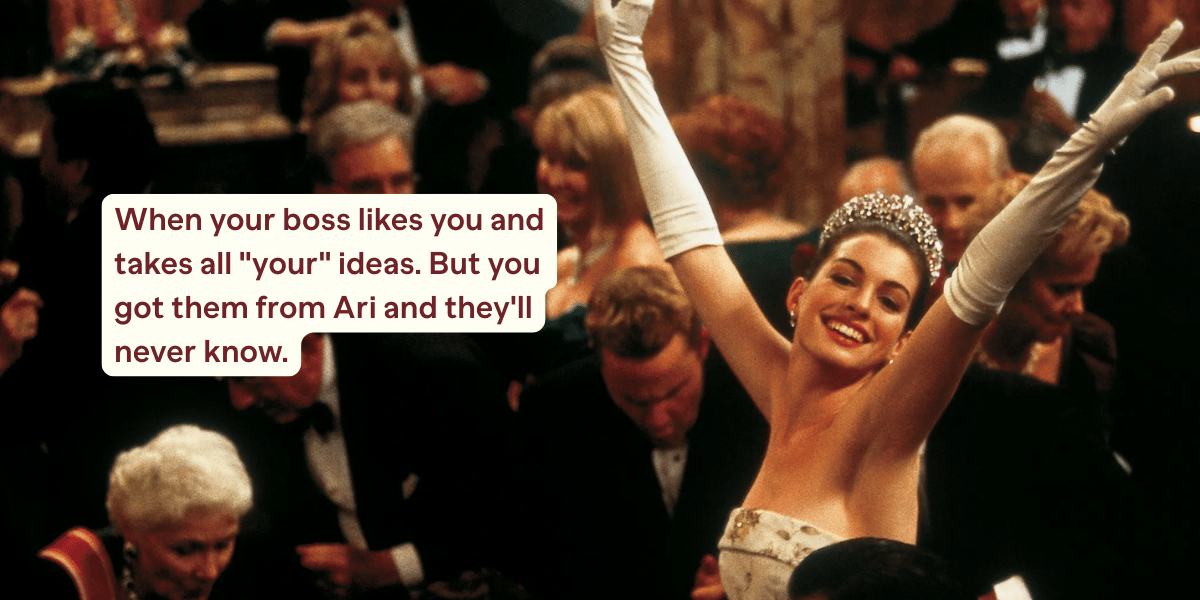- The Daily GOOD
- Posts
- A pay phone resurrection, Radiohead’s truth, and a toilet paper time capsule
A pay phone resurrection, Radiohead’s truth, and a toilet paper time capsule
We’ve got a Radiohead confession, a real-life time capsule, and a town where pay phones are making a comeback. (Also: a quick experiment that exposed everyday sexism.) It’s weird, wonderful, and well worth a scroll.
Cell service: zero. Free pay phones: unexpectedly everywhere.
There is so much clever technology lost to the whims of history. How did the Romans make their death ray? How did the Chinese craft the Great Wall? How did children get home from the movies in areas with poor cell service? If only there were a publicly accessible way to make calls!
Vermont engineer Patrick Schlott turned to ancient tech for the answer. He’s resurrecting the humble pay phone, installing refurbished models around the town of Tunbridge, where there's no cell service for miles. The twist? These phones are packed with the latest technology and are, surprisingly, free to use.
Schlott solved a real problem in his community with some old tech, some new tech, and a lot of maker-spirit. Read the whole article by Erik Barnes to learn how he did it.
Your boss will think you’re a genius
If you’re optimizing for growth, you need ecomm tactics that actually work. Not mushy strategies.
Go-to-Millions is the ecommerce growth newsletter from Ari Murray, packed with tactical insights, smart creative, and marketing that drives revenue.
Every issue is built for operators: clear, punchy, and grounded in what’s working, from product strategy to paid media to conversion lifts.
Subscribe for free and get your next growth unlock delivered weekly.
Thom Yorke explains why calling Radiohead “depressing” totally misses the point
Since Creep hit the airwaves in 1992, Radiohead has worn the label of “depressing” like a scarlet letter. Critics have called their sound cold, distant, and disturbingly bleak. (One even built a “gloom index” to prove it. Spoiler: True Love Waits topped the sadness charts.)
But here’s the thing: Thom Yorke isn’t having it.
In a resurfaced Q&A, Yorke shares a deeply personal take on how depression informs, not defines, his music. “It’s offensive,” he says of the label. “It implies suffering from depression is subnormal.” For him, making music while in that headspace isn’t just inevitable. It can be transformative.
Even in the heaviest tracks, Yorke sees humor and catharsis. And maybe that’s the whole point: music that meets you in the dark and stays with you until you find light.
Read the whole story, and hear the music, in this story by GOOD's resident music historian, Ryan Reed.

🎶 What’s the most cathartic Radiohead song?Pick the track that gets you in your feelings, in the best way. |
And what did we learn?
Yesterday’s poll asked which type of concert-monster is the worst. And the winner (or loser, depending on your perspective) is…
64.1% - The Intoxicated Loudmouth
17.9% - The Cell-Phone Obsessive
12.8% - The Bulldozer
5.1% - The Band-splainer
Look at you, Band-splainer! I thought you’d score higher, but it turns out your obscure knowledge might just be appreciated.
A loft renovation, a vintage sink, and a 35-year-old welcome note.
When Charlotte England-Black moved into her new home in Nottinghamshire, she expected some dust. Maybe even a spider or two. What she didn’t expect was a 35-year-old toilet paper roll with a red-ink message from a 7-year-old stranger: “I hope you enjoy staying here. Lots of love, from a friend.”
Naturally, she posted it online and within ten minutes, the mystery author came forward. Emma Waddingham (now Smith), who left the note sometime in 1989, had no memory of writing it. But the rediscovery triggered a wave of nostalgia: Tom and Jerry wallpaper, a duck named Donald, and her dad restoring a boat in the driveway.
England-Black now plans to return the roll to the attic, along with her own message, in hopes of continuing the chain 35 years from now.
FROM THE VAULT
He thought sexism meant catcalls and pay gaps until he accidentally misgendered himself in an email.
Sexism? Sure, it exists. Women get paid less. Some guys say gross stuff. But come on, how bad can it really be? That’s where Martin Schneider’s head was when he started his week. Sympathetic, but skeptical. Until one email changed everything.
Martin accidentally signed off of an email as “Nicole,” the name of his female coworker. Right away the clients got colder, more critical. So Martin and Nicole tried an experiment: swap email signatures for a week.
Martin spent the next five days being second-guessed, talked down to, and even propositioned. Meanwhile, Nicole breezed through tasks she’d normally have to fight for, having one of the best weeks of her professional life.
Sexism isn’t just catcalls and pay gaps. It’s a quiet, constant erosion, and by Friday, Martin understood that a lot better. See how the entire experiment played out in this standout piece from the GOOD Vault.
💬From the group text…
Did you know you needed to hear a Faulknerian ode to Even Williams whiskey today? Me neither, but apparently I did!
That’s today’s GOOD stuff, until next time, no alarms and no surprises, please.








